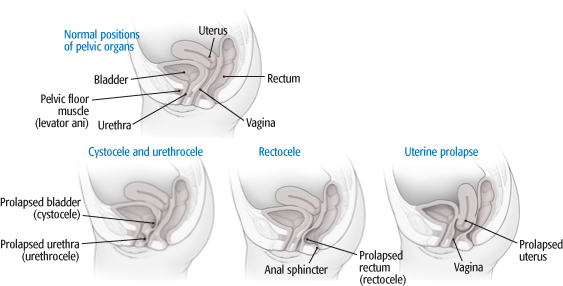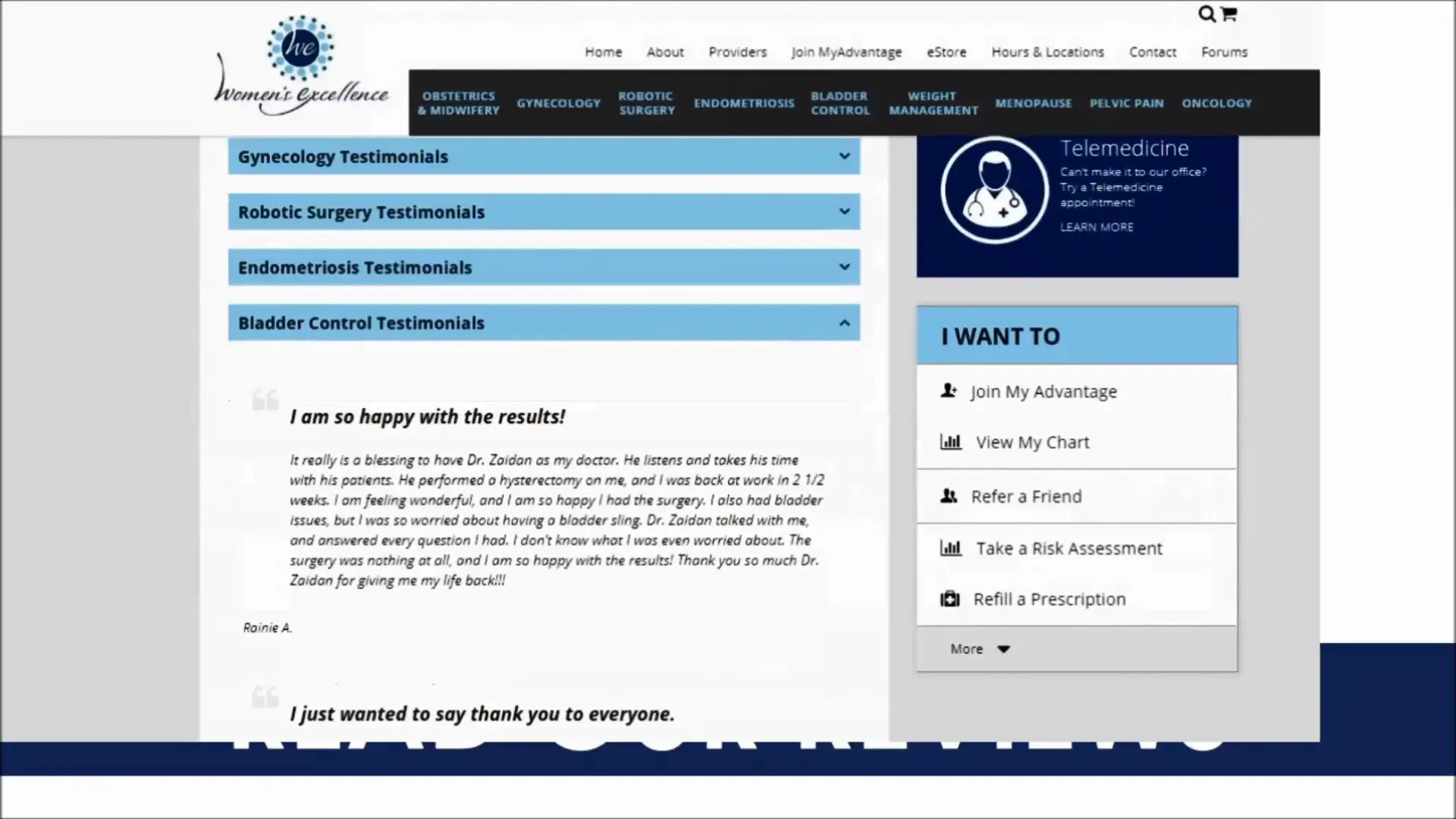
If you have pain and discomfort from pelvic organ prolapse that does not respond to nonsurgical treatment and lifestyle changes, you may want to consider surgery. The choice of surgery depends upon which organs are involved, how bad your symptoms are, and what other medical conditions are present.
Types of pelvic organ prolapse:
Different types of pelvic organ prolapse affect different parts of the vagina (see illustrations):
- Cystocele and urethrocele. A cystocele occurs when the bladder protrudes into the front wall of the vagina. A similar defect, known as a urethrocele, develops when the urethra presses into the front vaginal wall.
- Rectocele. Part of the rectum bulges into the back wall of the vagina, sometimes causing difficulty with defecation.
- Uterine prolapse. The uterus drops down into the vagina. In women who have undergone a hysterectomy, a similar condition known as vaginal vault prolapse can occur: the top of the vagina protrudes into the lower vagina.
What causes pelvic organ prolapse?
Pelvic support comes from pelvic floor muscles, connecting tissue (fascia), and thickened pieces of fascia that serve as ligaments. When pelvic floor muscles are weakened, the fascia and ligaments have to bear the brunt of the weight. Eventually, they may stretch and fail, allowing pelvic organs to drop and press into the vaginal wall.
Women who have had multiple vaginal births are at greatest risk for pelvic organ prolapse, particularly after menopause. Other risk factors include surgery to the pelvic floor, connective tissue disorders, and obesity.
What are the symptoms?
Women with mild prolapse discovered during a routine pelvic exam may have no symptoms at all. But others experience considerable discomfort and a range of symptoms, including:
- Pressure and pain. The most common complaints are a feeling of pelvic pressure, or bearing down, leg fatigue, and low back pain.
- Urinary symptoms. Cystocele, urethrocele, and uterine prolapse can cause stress incontinence and difficulty in starting to urinate.
- Bowel symptoms. A rectocele may cause problems with defecation by forming a pocket just above the anal sphincter. Stool can become trapped, causing pain, pressure, and constipation.
- Sexual problems. A prolapse can cause irritated vaginal tissues or pain during intercourse, as well as psychological stress.
If you think you have a pelvic prolapse condition, contact us today. A traditional pelvic examination is the only way to diagnose it.
What do you need to know?
We have the ability to correct your pelvic organ prolapse with the latest techniques and the most minimally invasive approaches.








Women's Health BlogRead More
Hereditary Cancer Risk Testing for Women: Empowering Choices and Saving Lives
Cancer is a formidable adversary that affects millions of lives worldwide. While cancer can strike anyone, it is a well-established fact that certain types of cancer have a he
Read More
Breast Cancer Awareness Month
October is Breast Cancer Awareness Month, a time when individuals, communities, and organizations around the world come together to raise awareness about breast cancer and pro
Read More
Bone Health for Women
From helping our bodies move to protecting our internal organs, our bones play an important role in our overall health. Building and maintaining good bone health is crucia
Read More
What's New at Women's ExcellenceRead More
Virtual Women’s Health Visits Now Available at Women’s Excellence, Expanding Access to Care
Women's Excellence, a leading healthcare provider specializing in women's health, is excited to announce the expansion of its virtual visit program called Specialty Virtual Ca
Read More
Women’s Excellence Leads the Way in Comprehensive Hormonal Management Care for Women
Women's Excellence, a renowned healthcare provider specializing in women's health, is proud to announce its comprehensive and expert hormonal management care program. Hormones
Read More
Helping Women Take Control of Their Bladder
Many women suffer from bladder control problems including urinary leakage, overactive bladder (OAB), stress incontinence, pelvic organ prolapse, or even interstitial cystitis
Read More